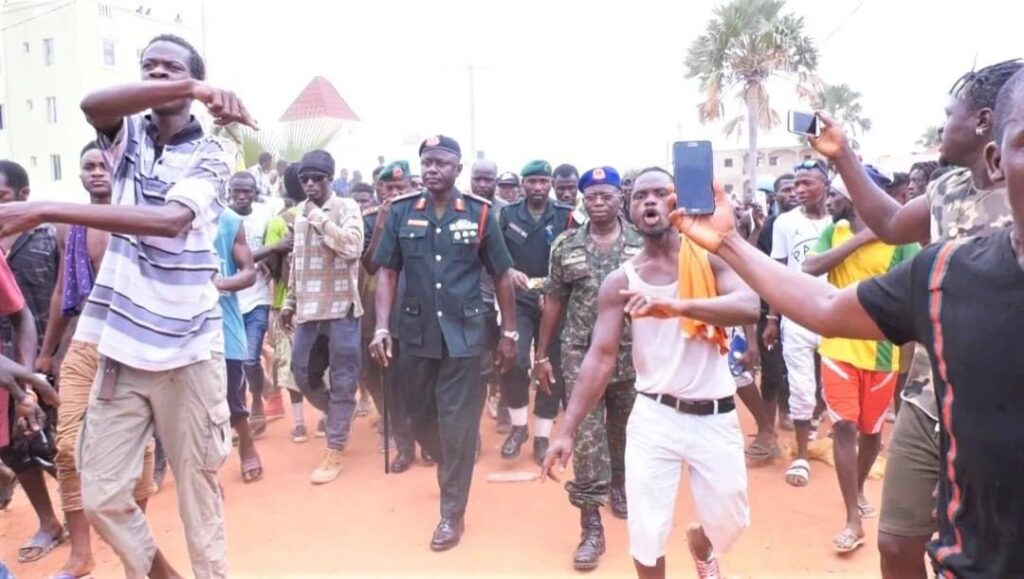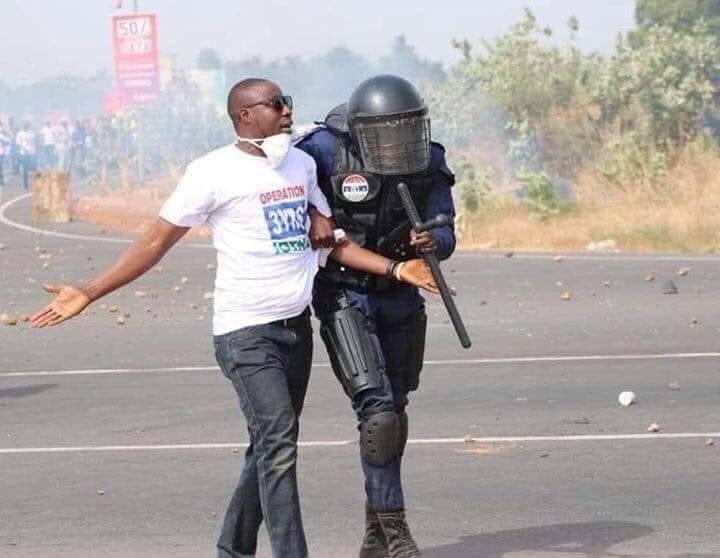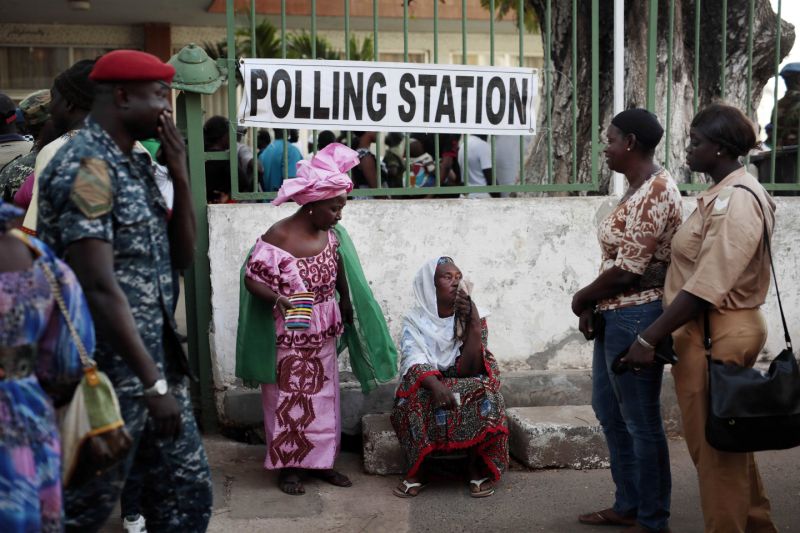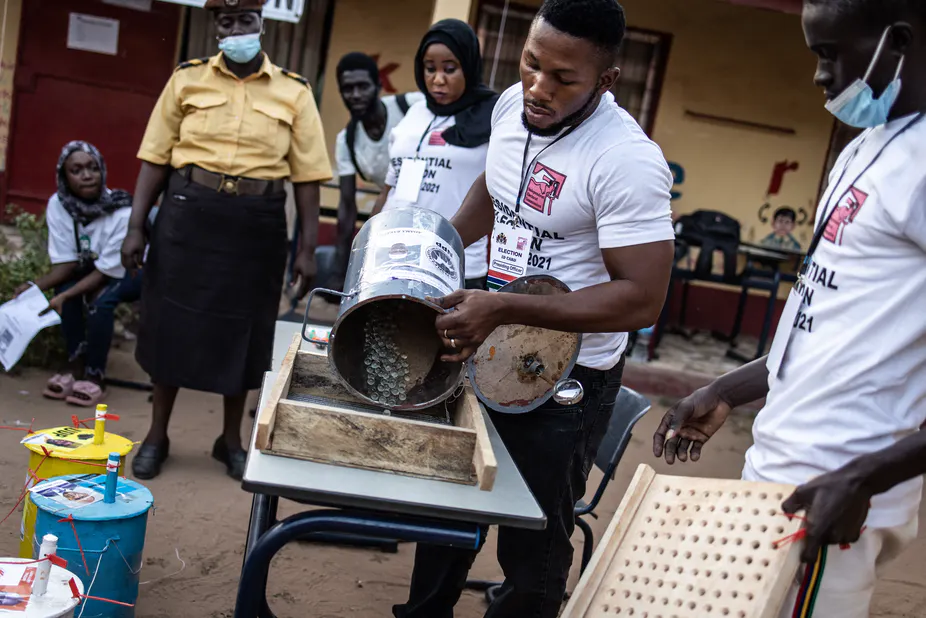
The political temperature is rising in the Gambia ahead of the incoming parliamentary elections on April 9. Repeated allegations of election fraud are likely, and the risk of damaging post-election disputes and violence could again cast a shadow over the Gambia.
It remains to be seen if the Gambia has learned any lessons from the recent past and finds itself better positioned to achieve a peaceful parliamentary election.
In this incoming legislative election on April 9, 2022, Gambians need to be more informed, more vigilant, and more accountable to themselves to beat any form of pre or post-election violence.
The beauty of democracy is that it is not deserved, but it is earned. The only rubicon to be crossed is through hard work, commitment to national values and an unyielding willingness to have every citizen believe in themselves.
On April 9, 2022, the Gambia decides again and again in the parliamentary elections. Whatever the choice that the people of this republic shall make, we only hope it will not destroy the Gambia.
One often wonders and imagines how terrific Gambian democracy would be without the mean appetites of ego-mongering politicians, land grabbers, tribal chieftains, and green-eyed power brokers.
However, unfortunately, the Gambia has suffered from toxic politics and the decay of Gambian political institutions due to the absence of adorable political character from some politicians and political Godfathers.
The Gambia’s emerging democracy will not survive long without responsible political Godfathers and charming visionary politicians that young people can emulate.
The 2022 political epoch of a defining presidential election comes when our political discourse has become so sharply toxic polarised along tribal, class, and to some reasonable extent, religious lines.
Thus far, since independence, the Gambia has engineered great systematic inequality, economic opportunity, and human rights abuses and delivered environmental injustices that will remain painful scars in the flesh of the Gambia.
Some political Godfathers and politicians funned tribal warfare for selfish gain and soiled their hands with human blood they took for political reasons and as well for political opportunism.
As a result, the Gambia is filled with ‘boring’ politicians. So boring are the politicians that most of them have nothing intellectually stimulating to offer the world.
Save for a few honorable names and some few others, and all want to be president. They make the country very worried.
Barely a few weeks away, the entire nation is understandably agog over the April legislative elections. It is electioneering and politicking time again, and we are back at the same crossroads as we were in the December 4, 2021, presidential election, except that this election is more precarious and ominous than the former.
As expected, many discourses and conversations are about the national assembly elections. The print and social media are not left out as headlines about the upcoming elections continue to grace the pages of newspapers, make the front burner of media outlets and illume chat rooms on social media.

From Banjul to Nuimi, Foni to Suduwol, the streets are overwhelmingly “cluttered” with various political party posters and leaflets, persuading the electorates to vote for a particular candidate or party. In addition, political parties and candidates have been holding political meetings from region to region to sway voters.
Never in the history of our nascent democracy has the political arena been this competitive, tense and dire. With the election verbatim of political party leaders and candidates as being a “do or die affair”; with the ever-increasing threats from “glorified political thugs” branding themselves as statesmen, the country would break up if their favoured aspirants and candidates do not win the upcoming elections.
With the ongoing mass cross-carpeting of politicians from one political party to another in the quest for position and power, it is no surprise that we find ourselves in this current state of apprehension and fraught over the elections.
As election campaigns inadvertently overheat the polity, political violence is increasingly becoming the order of the day in a seemingly pre-election day Nigerian fashion.
Recently, properties were destroyed, civilian and security officers clashed, and several injuries were sustained in Barikama in the Western Region.
In addition, online political bullying has equally permeated discourse on political issues, as “die-hard” supporters of both political parties and candidates are increasingly becoming repugnant and intolerant to one another.
Indeed, we do not need rocket science to foresee this probable prediction. However, this should not be the case. There is also a belief that Gambian diaspora people alike, which could not mean well for the Gambia, and who may wish for our beloved country to dissolve into a theatre of bloodshed, gore, and instability.

If there are such interests out there, they will succeed if we continue this politics of violence and mayhem, this do-or-die politics, and making enemies of ourselves and friends of our enemies.
Similarly, our clime’s ever-present religious and ethnic sentiment is increasingly being exploited by some ethnic and religious jingoists for political gains, fuelling the pre-election violence currently being witnessed.
Hence, leaders of political parties and candidates should publicly and categorically condemn, denounce and disassociate themselves from such supporters who use violence as a means of expressing themselves or showing solidarity for a political party or candidate.
All of our politicians must comport themselves, be warned, and be penalized if and when they make unguarded statements, which incite their supporters to commit violence or inflict mayhem.
Politicians must be cautioned to act with decorum, respect, and fair play, instead of peddling in unnecessary mudslinging and character assassination.
Political aspirants must be urged to conduct civil and peaceful campaigns devoid of threats and a commitment to preach peaceful elections to their supporters.
Another salient issue I am finding difficult to wrap my brain around is the involvement of religious leaders in politics. In this election especially, it is a fact that religion has been intertwined with political activities.
We have seen this before where some political office holders misuse religion as a tool to get to power, while religious leaders are mishandling it to get personal gain from those who hold public office.
While religion has contributed to nation-building, the positive impact of religion on the Gambia’s democracy has remained negligible.
The manipulation of religion by some influential and powerful individuals who hide under the guise of religion to pursue selfish interests remains one of the adverse effects of religion in our polity.
Religious leaders are openly celebrating and singing the praises of some political bigwigs and furthering their agenda, all in the name of religion. The pulpit, in most cases, has been transformed into a podium for electioneering.
Undoubtedly, a significant amount of religious leaders are endemically involved in partisan politics.
Ideally, religious leaders are meant to be apolitical. They should focus and engage more in peace-building instead of actively involved in politics, making public utterances that many devout followers, unfortunately, believe to be divinely inspired.
The roles of religious leaders should be in nation-building. They should not stand or clamor for any political aspirant or party.
Religious leaders and their institutions should stand for values, morals and set standards necessary for a stable, peaceful, and prosperous nation. Their congregations are certainly of diverse political leanings.
It is not prudent to divide or cajole them because of personal political opinion. The Muslim Clerics and Christian Clergy must altogether remove themselves from the political arena, preach for peace and be ready to calm the atmosphere in the aftermath of the elections, should there be a violent fallout.
Pastors, Oustazz, Arfangs, Imams, Reverend Fathers, Emirs, and other traditional and religious leaders should all be engaged in building a culture of peace, national unity, and integration.
These religious and traditional leaders undoubtedly play essential roles in building social cohesion in the Gambia. Therefore, all efforts must be made to bring together such leaders on a neutral and apolitical platform to speak in one voice, preaching violence-free electioneering and politicking and exploring collaborative approaches to peace in times of crisis.
Based on a shared commitment to shared values and their moral authority, religious leaders and traditional rulers can serve as the conscience of this great nation of ours, working together to strengthen and build consensus around those shared values.
As we approach the legislative elections, the choice the electorate needs to make without violence or mayhem is simply between “unity and reconciliation” via the ballot box.
However, in making that choice, we as a people should emphatically say “NO” to election violence and anything that does not stand for the peaceful unity that the Gambia so desperately needs.
The Gambia badly needs leaders who can stand by their word. These leaders can deliver speeches that will lift human hearts in dark times, speeches that can give hope in anguish, speeches that will refine the characters of men, inspire brave feats, give courage to the many who are weary, honor the distinguished patriots who have died in the field of battle and duty, and change the course of our national history.
Suppose a political leader cannot inspire a nation and deliver memorable speeches. In that case, such can never be gladly remembered by posterity. However, unfortunately, these leaders have no style, substance, or impact.
Pray, good heavens, some have been in politics for decades. Nevertheless, they remain the agents of apathy even to their constituents for years, yet want to be distinguished people’s representative wants to be president of The Gambia.

How sorry that ambition is. Then some are known for nothing other than embezzling government money. Ah me! Did fate have to be this generous to the Gambia with a package of awful politicians?
It worries any nation when their leaders doze off in parliament in broad daylight. My South African friend Kyle Steven captures it in excellent graphical terms in his poem In the Night:
In parliament
the god of debate
fails to cross the divide
of rich and poor
In the laager
the god of revenge
flickers around tv screens
In the kraal
the god of small beginnings
shakes itself, begins to stir again
In the night
the god of the ancestors-holds peace.
They meet cheek to cheek and wonder why.
The Gambian politicians are like prostitutes at the political temple and engulfed in the night. They shift from party to party and swing from one standpoint to another, devoid of an ideological basis.
They are there merely to make money by luring the less firm people who are not faithful to national values. This time, in these elections, we have a chance to decide and depart from nebulous political positions.
Let us make it an embarrassing vote that will relegate the graft-masters and their scions to the backwaters.
In Africa, we know that a man rises on the shoulders of his relatives. So if, in the end, we have corrupt members of the National Assembly, incompetent lawmakers, and redundant Godfathers, then we have ourselves as kinsmen for culpability.
However, to hope that we can vote in the same coterie of looters and hope for inspirational leadership require more than Panglossian optimism.
So let us come out in sufficient numbers and waste those insignificant fellows. They utter dangerous nonsense with total impunity in the name of politics and make sure that politicians start talking sense for once.
We must keep our heads above the ethnic waters to forge a prosperous and democratic future for the Gambia in an economically strategic, albeit impoverished, and politically polarized member-state in the Economic Community of West Africa Community league.
The Gambia’s greatest tragedy is having the present generation of politicians who will be painfully remembered for having handed nothing to posterity except the memories of greed.
For once, let us abandon armchair revolutions and boardroom politics that culminate in less-eloquent choreographed chest-thumping press conferences. If we do this, we shall eternally shame the politicians who are prostitutes in the temple of politics.
Whether it is a vote for unity or reconciliation, the Gambia needs peace and dialogue to move forward. If we do not want this country to go into pieces, we must enter the April 2022 elections in peace.
By Alagi Yorro Jallow











Recent Comments